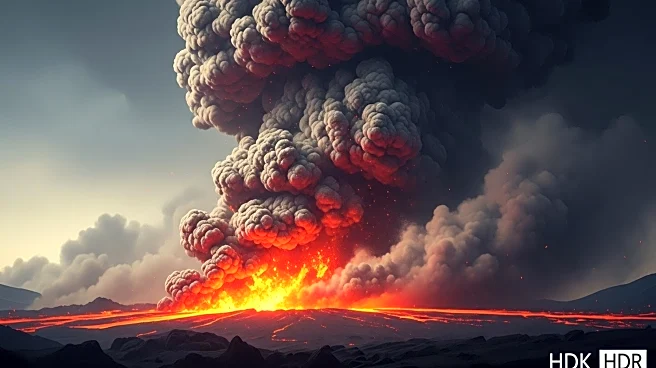What's Happening?
Research conducted by David Kaniewski and colleagues at the University of Toulouse suggests that severe volcanic eruptions and changes in solar activity may have contributed to social upheavals, including the French Revolution. The study examined historical records of 140 rebellions between 1250 and 1860, correlating them with environmental factors such as volcanic eruptions, solar activity, and climate change. The findings indicate that colder phases of the Little Ice Age, marked by temperature drops and reduced precipitation, coincided with increased social unrest. The study highlights the impact of environmental conditions on agriculture, leading to food shortages and rising grain prices, which in turn fueled rebellions.
Why It's Important?
The study underscores the potential influence of environmental factors on historical social and political events, suggesting that climate conditions can exacerbate societal tensions and contribute to significant upheavals. Understanding these correlations may provide insights into current and future challenges posed by climate change, emphasizing the need for adaptive strategies to mitigate its impact on societies. The research also highlights the importance of considering environmental conditions in historical analyses, offering a broader perspective on the causes of social unrest and revolutions.
Beyond the Headlines
The study raises questions about the interplay between environmental stressors and societal resilience, suggesting that nations with adaptive strategies may better withstand climate-induced challenges. It also prompts further exploration into the role of environmental factors in shaping historical events, potentially influencing contemporary policy decisions regarding climate change adaptation and mitigation. The research invites a deeper analysis of how societies respond to environmental pressures and the cascading effects on political stability and social order.









